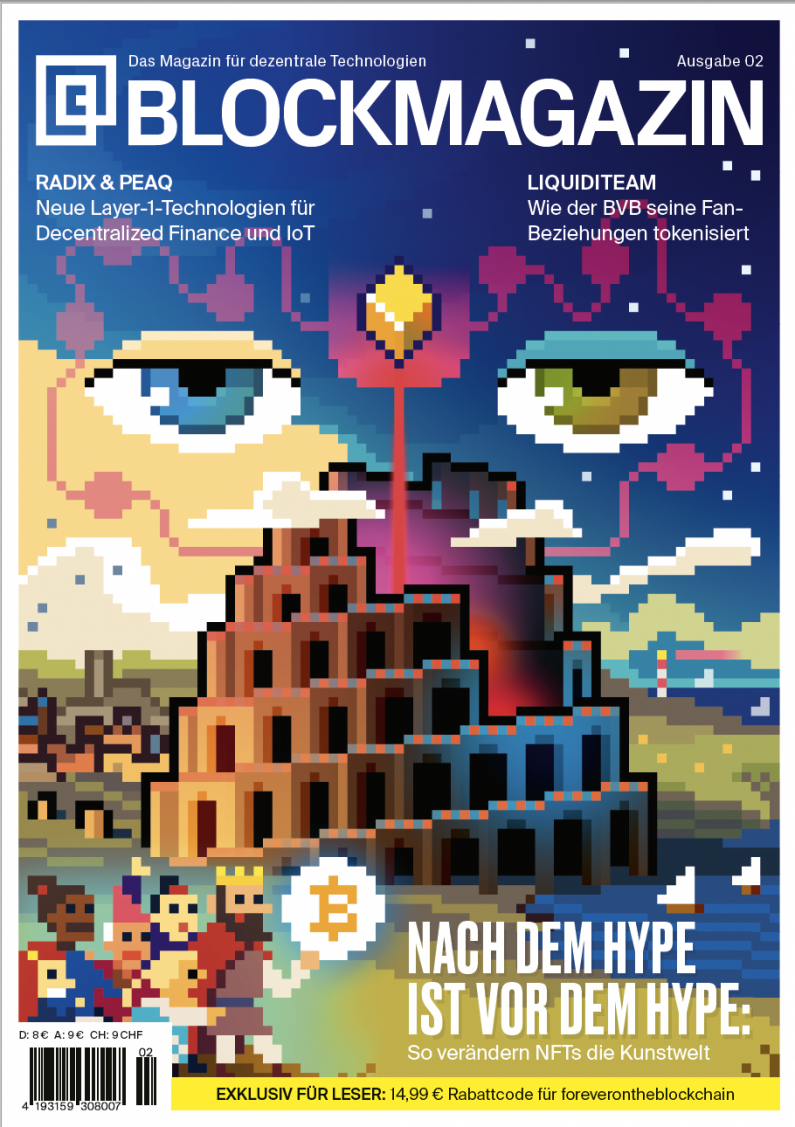Digital currencies on analog pages
Last year, Lukas Fiedler launched the first printed magazine on the thematic cosmos surrounding blockchain, DeFi and cryptocurrencies – pretty much the most digital trends of our time, by the way – in newsagents. Now the second issue is finally out. In addition to hearty congratulations, we mainly have questions for the man, who single-handedly proves that print is not dead.
1) Lukas, you have taken it on yourself to publish the first print magazine on the topic of blockchain and crypto. How do you come up with such an idea?
This was actually a steady process that had started in 2017 with the continuation of the German blog “Der Altcoinspekulant”. Primarily, I dealt with new ICOs on the blog at that time and was able to quickly build a network through it – but that also meant that I had no new topics with the start of the bear market in 2018, there were no new ICOs worth mentioning. Simply giving up the blog seemed too easy and an online news agency was also not an option. Then by chance, on a trip to London, I picked up a copy of the print newspaper “The Fintech Times” and was thrilled. Print and blockchain were not yet widely available in the German-speaking market (except for a magazine exclusively focused on IOTA and the crypto compass of BTC-Echo) and luckily I was just at a point where I could simply say: I will change that.
2) Print is obviously “not dead”, at least in the niche. The crypto world is fast-moving: blogs, forums, and web magazines are overflowing with news about the latest prices and recommendations to buy. You deliberately chose a decelerated format. Why and what does that mean to you?
When I first came into contact with Bitcoin in mid-2016, it was quite easy to find content that explained well and simply how blockchain technology works. Today, the opposite is the case. From my point of view, there is a massive overabundance of digital blogs, news and explanation sites on the topic of blockchain and the topic has become significantly more complicated to get started from scratch with DeFi and numerous new DLT approaches. A newcomer who is tech-savvy but has a regular full-time job has to bring an extremely large amount of time (which he doesn’t have due to his job) and faces more new questions than answers after reading the first few articles. This is where Blockmagazin comes into play. We don’t explain which coin might make you rich quick, nor how to program a smart contract. The focus is on a simple explanation of the technology and the various areas of application – in other words, a kind of one-stop solution for busy prospective customers. At the same time, the behind-the-scenes insights also offer added value for crypto veterans. What makes the medium work for me in this regard? The freedom of not being funded by clicks and thus not having to pick up every little bit of news.
3) It’s hard to imagine the German-speaking crypto scene without you, and not just since yesterday. How has the reporting, as well as the communication of companies in the industry changed?
Just the other day I read in an article by Christoph Bergmann that cryptocurrencies are 90% marketing and 10% technology. This seemed not to be so “bad” a few years ago. Among other things, this may be due to the fact that many who discovered the blockchain early on, are technically savvy, and a huge amount of opportunists have joined in recent years. In a bull market, currently that means that if you have decent PR and communications, you are in direct competition with crazy memes and tweets from celebrities like Elon Musk, who can influence prices with a tweet, or create new currencies (see Elongate). However, I think and hope that in the long run, honest communication focused on technology will always be worthwhile.
4) With Blockmagazin, you’ve taken on the topic of education. Good timing, interest is growing more than rapidly, the boundaries between technological possibilities and marketing phrases are fluid. How can non-techies acquire the necessary prior knowledge when Blockmagazin has already been finished reading?
Unfortunately, there is not one right approach here. However, the knowledge bases of established exchanges are often a good place to start. Here, you can find many more in-depth articles, e.g. on consensus algorithms or various DLT technologies. For those who would rather have a community, Mirco Recksiek’s Bitcoin2Go should be a good place to start.
5) Your email inbox must be bursting with pitches, press releases and news alerts. What should a subject line look like so that you click on it? What does the perfect collaboration with communicators and companies look like for you?
In fact, that’s not the case right now, everything runs through my network – pitches and press releases are rather rare. So for me to become aware of a project, the right people have to mention it in the right channels, and then I like to get an overview on site myself. From my point of view, the perfect collaboration between communicators and companies should also move away from the mainstream and try out new ways – that doesn’t necessarily mean that you should rely on memes. But a precise knowledge of the market and an understanding of the technology are part of it in any case.
Thank you very much Lukas.

The interview was conducted by Paul Gärtner, Practice Director at PIABO PR. Located in the heart of Berlin, one of the world’s best blockchain hotspots and startup scenes, PIABO has been representing clients from the extended blockchain cosmos for years. These include DFINITY, the xx network or financial service providers such as Etoro or Vivid.


